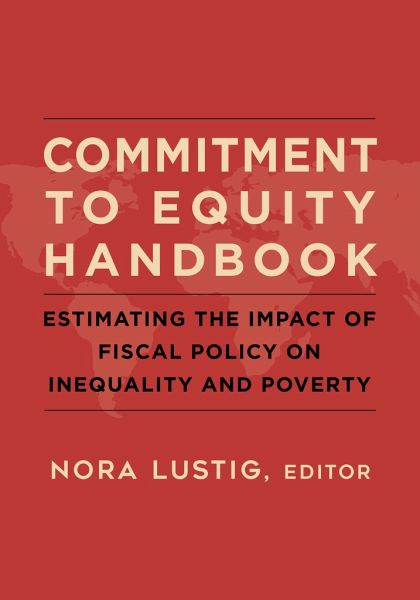Nicht lieferbar

Commitment to Equity Handbook
Estimating the Impact of Fiscal Policy on Inequality and Poverty
Herausgeber: Lustig, Nora
Versandkostenfrei!
Nicht lieferbar
Inequality has emerged in recent years as a major topic of economic and political discussion. One key way governments affect income gaps and living standards is through taxation and social spending, but it is often unclear how effective this process can be. This unique volume helps fill that void of uncertainty. The Commitment to Equity Handbook examines both the theory and the practical methods that determine the impact of taxation and public spending on inequality and poverty. In particular, it provides a step-by-step guide for policymakers, economists, and social planners on how to conduct ...
Inequality has emerged in recent years as a major topic of economic and political discussion. One key way governments affect income gaps and living standards is through taxation and social spending, but it is often unclear how effective this process can be. This unique volume helps fill that void of uncertainty. The Commitment to Equity Handbook examines both the theory and the practical methods that determine the impact of taxation and public spending on inequality and poverty. In particular, it provides a step-by-step guide for policymakers, economists, and social planners on how to conduct a Commitment to Equity Assessment, a diagnostic tool that uses fiscal incidence analysis and a broad range of indicators to gauge the impact of fiscal policy on equity. The handbook also has user-written software along with several country studies and cross-country comparisons. In addition to serving as a manual, the Commitment to Equity Handbook can be used as a stand-alone reference by those interested in the methods for assessing the relationship between fiscal policy and equity. It also serves as a textbook for advanced undergraduate and graduate courses on public finance and income distribution.












